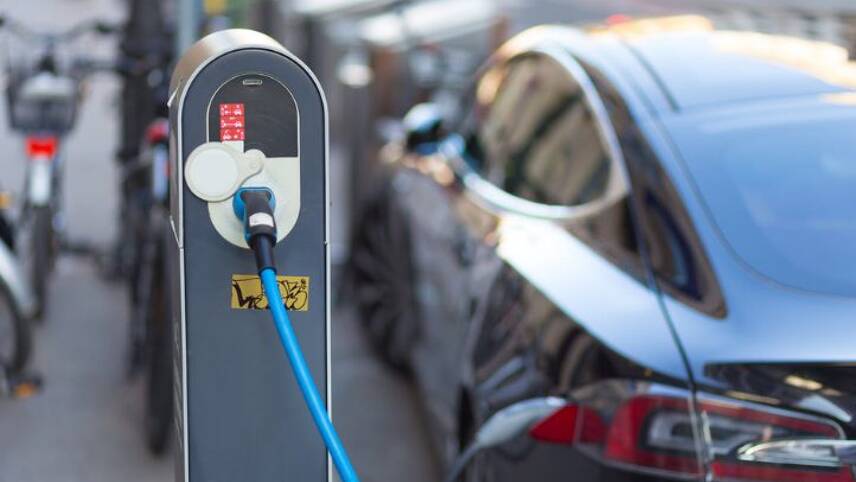Register for free and continue reading
Join our growing army of changemakers and get unlimited access to our premium content

EVs could add up 30% to peak power demand by 2050
National Grid predicts that by 2050, millions of electric cars will use wind and solar power to charge up within minutes to act as battery packs for when the grid needs more energy.
The grid operator’s long-range energy forecasts predict that smart charging systems will use algorithms to help cars balance demand and supply on the grid, while making the most of renewable energy and saving customers money.
It found that the plug-in car fleet could hold a fifth of the electricity produced by the UK’s solar panels, which it predicts will quadruple over the same period.
This scenario would make the UK’s ambitious target to cut emissions to net-zero by 2050 achievable because it helps cut carbon from the energy and transport sectors, according to the report.
National Grid’s head of strategy Kayte O’Neill added that electric vehicles will make the energy system more flexible and help bring down costs for consumers too.
The forecast is one of five future scenarios envisaged by National Grid to help policymakers and the energy industry shape the future energy mix.
In all scenarios the operator predicts electric vehicles will become the most popular form of transport between 2030 and the early 2040s. It also predicts that many more homes and communities will generate their own electricity through solar panels or micro windpower projects.
There are fewer than 200,000 electric vehicles on UK roads, meaning the ambitious plug-in car forecast would require a major acceleration of plans for car charging and a step change in customer behaviour.
The report said immediate action is required across the electricity, gas, heat and transport sectors “at a significantly greater scale than assumed in any of our core scenarios” if the UK hopes to meet its net-zero target.
National Grid’s report also predicts that a net-zero target will require that homes use at least a third less energy for heating than at present and shift away from using natural gas in boilers and radiators.
By 2050 at least 7m hybrid heat pumps, which partly rely on renewable energy, should be installed. The UK’s gas system should also be run on hydrogen, rather than typical methane-rich gas to help reduce greenhouse gas emissions.
The warning comes in the same week that the government’s official climate advisers, the Committee on Climate Change, criticised ministers for delivering only one of the 25 emissions-cutting policies it had considered vital for 2018.
Jillian Ambrose
This article first appeared on the Guardian
edie is part of the Guardian Environment Network


First this assume we will have 35 million EVs, 2nd that they will all be plugged in when not in use and 3rd that owners will be happy to let the grid take the power from the vehicle in the first place.
The last is like saying to Tesco that they can borrow the petrol from your tank while you do the groceries as long as they promise to refill it when you need it. And that AIN’T going to happen.
Come on really? Would anyone be happy to allow their car’s range to be reduced while it sits in the drive? What happens if there is some urgent need to drive and your battery is sitting at half or less because the grid needs power? Are you really going to sit there waiting for an hour or more to charge up?
A totally unpracticable idea that should be buried in the compost heap of good intentions and recycled as plant food